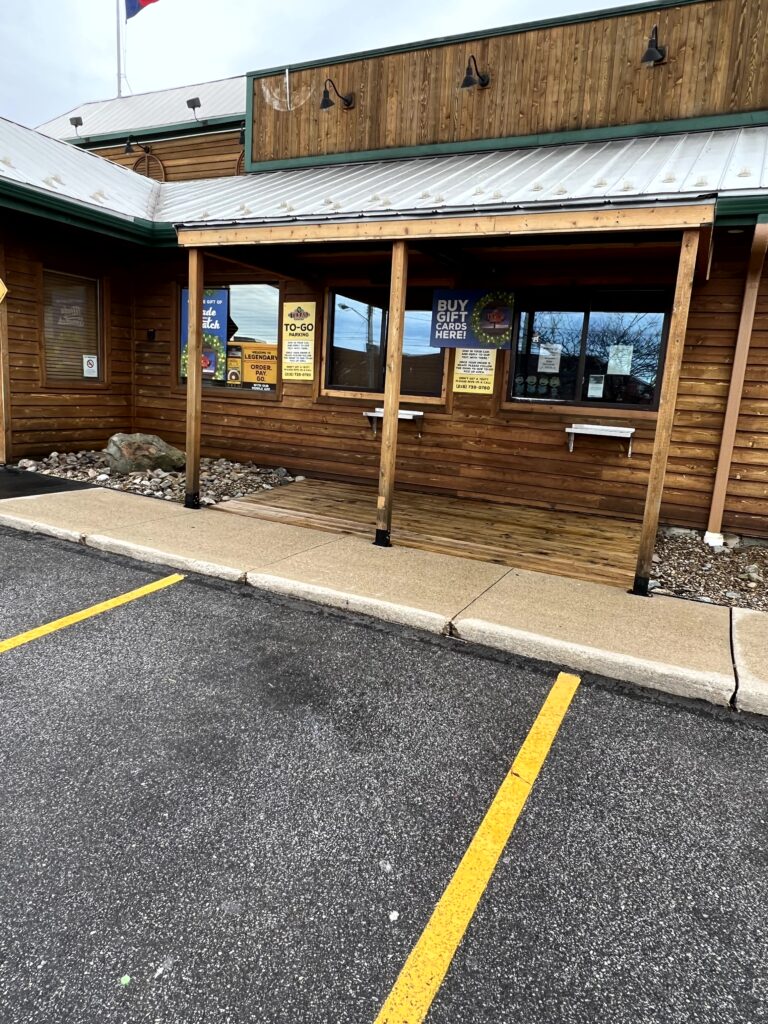
In the fast-paced and highly competitive restaurant industry, maintaining cleanliness is not just about aesthetics; it plays a crucial role in ensuring customer satisfaction, compliance with health regulations, and the longevity of the establishment. One effective method for achieving a high level of cleanliness is pressure washing. This article explores the myriad benefits of restaurant pressure washing, supported by manufacturer recommendations and expert insights.
1. Enhancing Sanitation and Hygiene
The primary benefit of pressure washing is its ability to remove dirt, grease, and grime that accumulate on surfaces over time. According to the American Society for Healthcare Engineering (ASHE), thorough cleaning is essential for preventing foodborne illnesses. Pressure washing not only cleans but sanitizes surfaces, making it an effective method for kitchens and dining areas where food is prepared and served.
The cleaning process involves using high-pressure water to blast away stubborn dirt and debris. This method is particularly useful in commercial kitchens, where grease buildup can pose serious health risks. As grease hardens over time, it can create an environment conducive to bacterial growth. A study published in the Journal of Food Protection indicates that regular cleaning can reduce the presence of harmful bacteria, thereby minimizing the risk of foodborne illnesses.
Manufacturer Recommendation:
Leading pressure washing equipment manufacturers, such as Karcher and Generac, recommend using hot water pressure washers for restaurant environments. Hot water not only cleans effectively but also sanitizes surfaces, killing harmful bacteria and pathogens. Karcher suggests that for optimal sanitation, water temperatures should exceed 150°F (65°C) when cleaning kitchen floors and equipment.
2. Improving Curb Appeal
A restaurant’s exterior is the first impression it makes on potential customers. A dirty or stained façade can deter patrons, while a clean and inviting appearance encourages them to enter. The National Restaurant Association emphasizes the importance of curb appeal in attracting customers. Regular pressure washing can significantly enhance a restaurant’s exterior, including sidewalks, patios, and building surfaces.
Exterior surfaces, such as brick, concrete, and vinyl siding, often accumulate dirt, algae, and mold, especially in humid climates. These substances not only detract from the visual appeal but can also lead to structural damage over time. A visually appealing exterior can create a positive first impression, enticing more customers to enter and explore the menu offerings. According to a survey conducted by Zagat, restaurants with well-maintained exteriors saw a 20% increase in foot traffic compared to those with less attractive appearances.
Manufacturer Recommendation:
Simpson Cleaning, a recognized name in pressure washing, advises restaurants to pressure wash their exteriors at least once a month, especially during peak seasons, to ensure that the establishment remains visually appealing and welcoming. Their product line includes specialized nozzles designed for cleaning various surfaces without causing damage.
3. Preventing Damage and Reducing Maintenance Costs
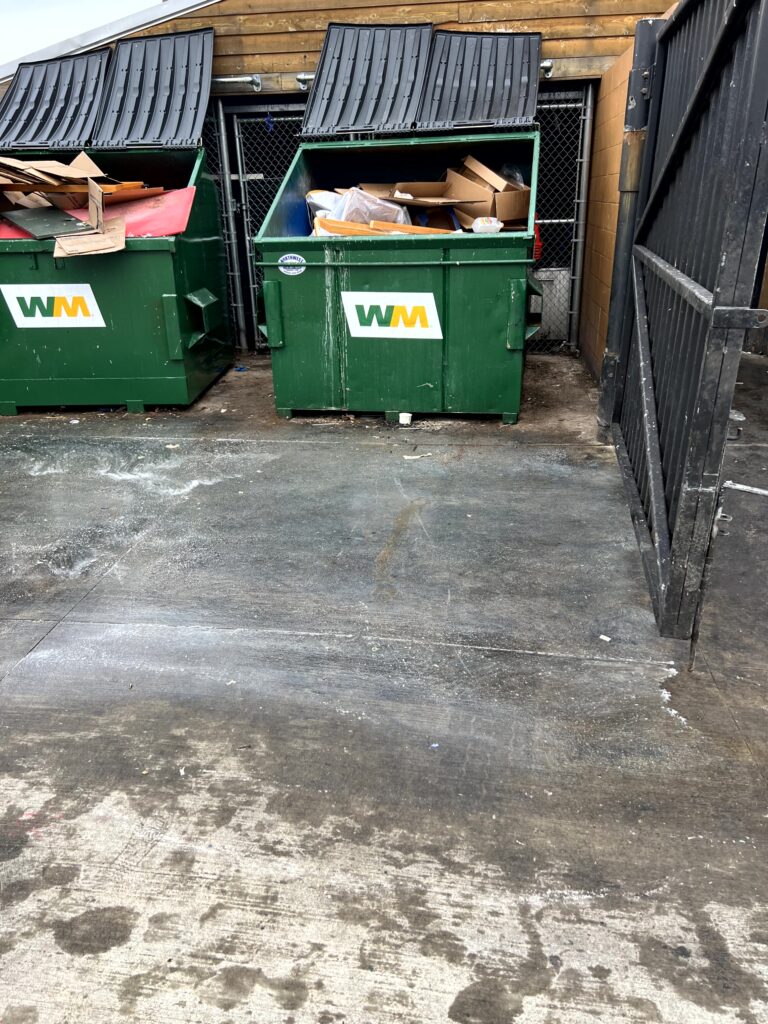
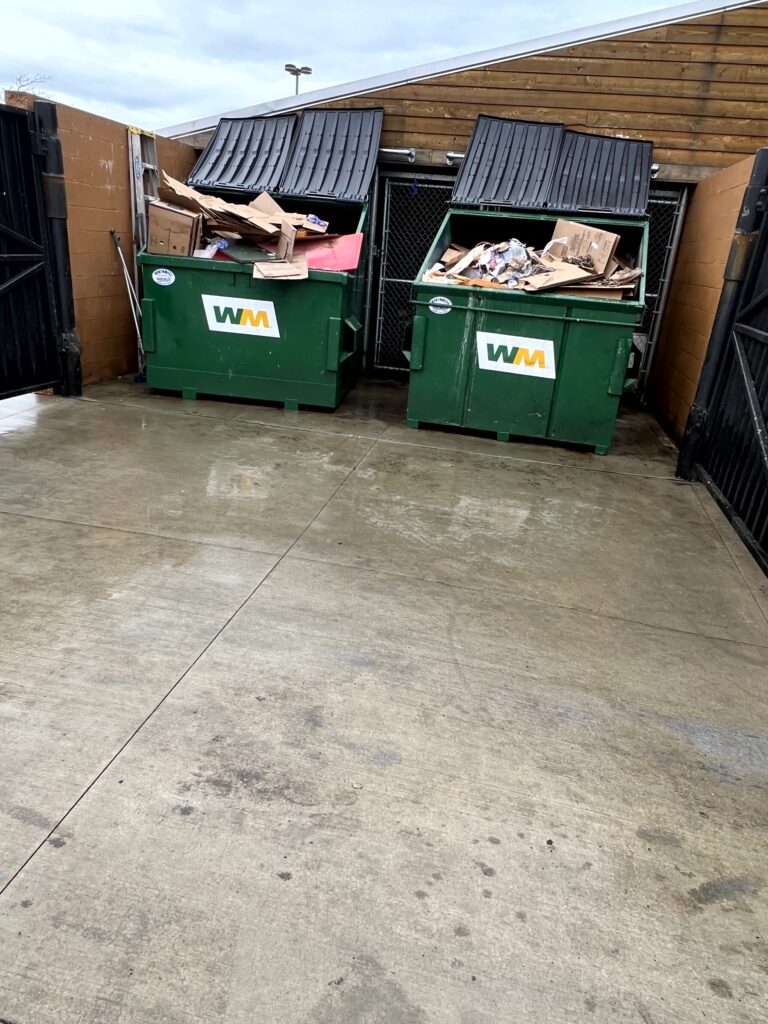
Regular pressure washing can prevent the buildup of substances that could damage surfaces and lead to costly repairs. For example, grease and food residue can degrade concrete and asphalt surfaces, resulting in cracks and stains. According to The Concrete Network, regular cleaning can prolong the lifespan of these surfaces, ultimately saving restaurants money on repairs.
Additionally, maintaining the integrity of outdoor seating areas, sidewalks, and parking lots is essential for creating a welcoming environment. Failure to address dirt and debris can lead to more significant problems, including potholes or structural instability, which can incur high repair costs.
Manufacturer Recommendation:
NorthStar, a manufacturer of pressure washing equipment, suggests that business owners incorporate pressure washing into their maintenance schedules, ideally quarterly, to prevent long-term damage and maintain surface integrity. They also recommend using commercial-grade cleaners specifically designed for heavy-duty cleaning to ensure the best results.
4. Enhancing Safety
Slips and falls are common hazards in the restaurant industry, often caused by slippery surfaces. Pressure washing can eliminate grease, food debris, and other slippery substances that contribute to accidents. The Occupational Safety and Health Administration (OSHA) highlights the importance of maintaining clean floors to enhance workplace safety.
In addition to reducing the risk of slips and falls, pressure washing also helps eliminate allergens and irritants that can affect both employees and patrons. Dust, pollen, and mold can accumulate in outdoor dining areas, posing health risks, particularly for individuals with allergies or respiratory conditions.
Manufacturer Recommendation:
DEWALT recommends using pressure washers with adjustable pressure settings to safely clean different surfaces without causing damage, ensuring both cleanliness and safety in high-traffic areas. For instance, using lower pressure on delicate surfaces such as wood decks can prevent splintering and other damage.
5. Supporting Environmental Compliance
Restaurants must comply with various health and environmental regulations. Regular pressure washing helps ensure that establishments meet cleanliness standards set by local health departments. Moreover, many pressure washing equipment manufacturers emphasize the importance of using eco-friendly cleaning agents to minimize environmental impact while effectively cleaning.
Environmental compliance extends beyond just maintaining a clean image; it also involves adhering to regulations regarding wastewater management and chemical runoff. Improper cleaning methods can lead to fines or shutdowns, underscoring the importance of using professional services that understand and comply with these regulations.
Manufacturer Recommendation:
RYOBI promotes the use of biodegradable detergents in pressure washing operations to help restaurants maintain compliance with environmental regulations while also being responsible stewards of the environment. Using eco-friendly products ensures that harmful chemicals do not enter the local ecosystem, protecting both wildlife and the community.
6. Boosting Employee Morale
A clean and well-maintained restaurant environment does not only benefit customers; it also significantly impacts employees. A clean workspace promotes a positive atmosphere, enhancing employee morale and productivity. Research conducted by The Cornell University Food and Brand Lab indicates that employees working in clean environments are more likely to be engaged and satisfied with their jobs.
Pressure washing removes not just visible dirt but also hidden grime that can cause unpleasant odors and unsanitary conditions. A fresh, clean environment boosts staff pride in their workplace and can lead to increased retention rates, which is critical in the often high-turnover restaurant industry.
Manufacturer Recommendation:
Pressure washing should be conducted during off-peak hours to minimize disruption. Hotsy recommends scheduling cleanings during the early morning or late evening, ensuring that employees can focus on their duties in a clean and inviting space.
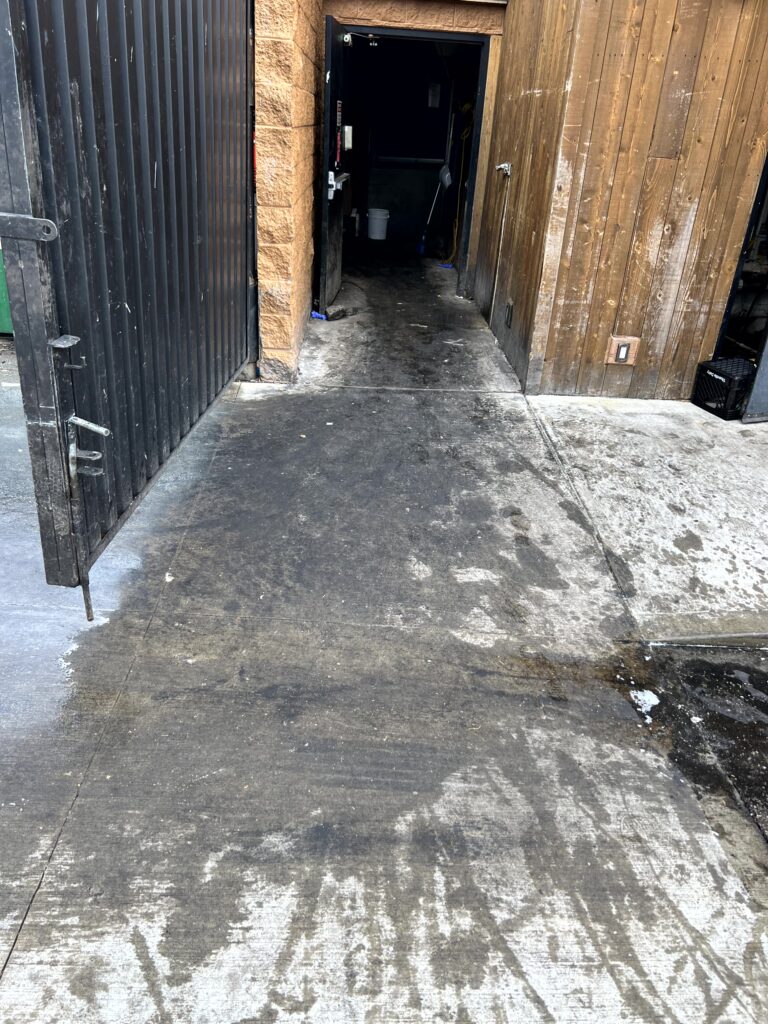
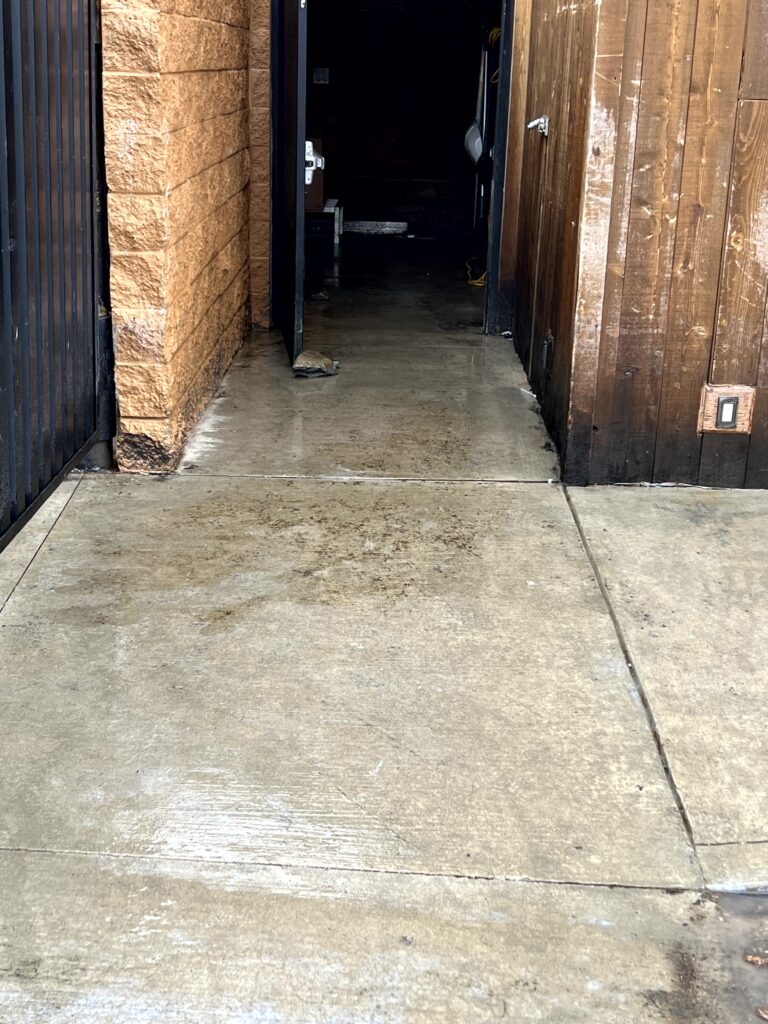
Conclusion
Incorporating pressure washing into a restaurant’s regular maintenance routine provides numerous benefits, from enhancing sanitation and curb appeal to improving safety and reducing long-term maintenance costs. By adhering to manufacturer recommendations and scheduling regular cleaning sessions, restaurant owners can ensure a clean, safe, and welcoming environment for both staff and patrons. In an industry where cleanliness is paramount, pressure washing stands out as a vital tool in achieving operational excellence.
References
- American Society for Healthcare Engineering (ASHE). (n.d.). Cleaning and Disinfection: The Basics. ASHE Website
- National Restaurant Association. (2021). The State of the Restaurant Industry Report. National Restaurant Association
- The Concrete Network. (n.d.). Concrete Cleaning and Maintenance. Concrete Network
- Occupational Safety and Health Administration (OSHA). (n.d.). Workplace Safety and Health. OSHA Website
- Karcher. (n.d.). Commercial Pressure Washers. Karcher Website
- Generac. (n.d.). Pressure Washers. Generac Website
- Simpson Cleaning. (n.d.). Pressure Washing Maintenance. Simpson Cleaning Website
- NorthStar. (n.d.). Maintenance Tips for Pressure Washers. NorthStar Website
- DEWALT. (n.d.). Safety Guidelines for Pressure Washing. DEWALT Website
- RYOBI. (n.d.). Eco-Friendly Cleaning Solutions. RYOBI Website
- Cornell University Food and Brand Lab. (n.d.). Impact of Clean Environments on Employee Satisfaction. Cornell University Website
- Hotsy. (n.d.). Pressure Washing Best Practices. Hotsy Website
